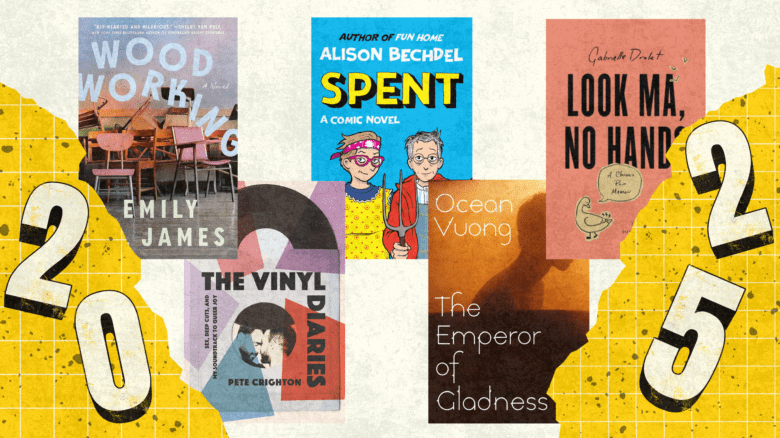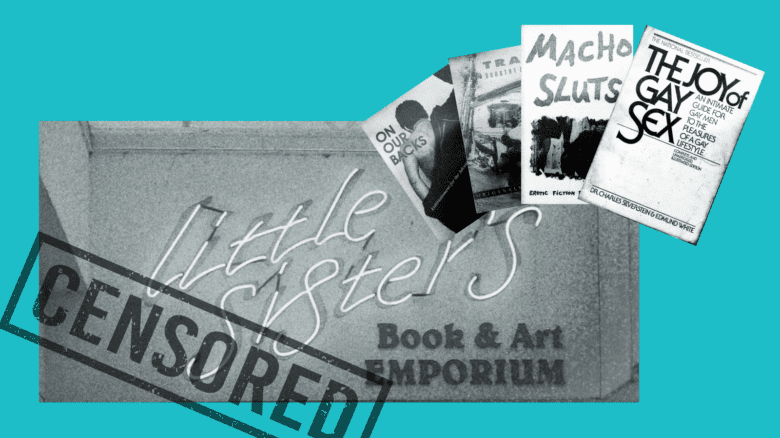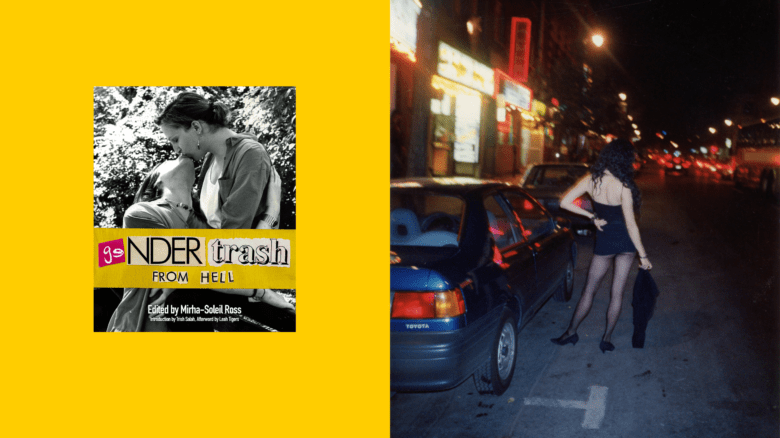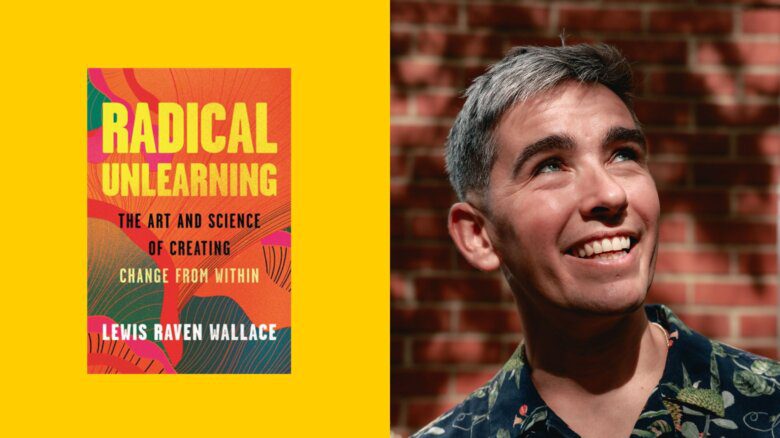“Maybe it is time that homosexuality itself dies,” Ben Miller and Huw Lemmey declare provocatively in the introduction to their book Bad Gays: A Homosexual History, released in May. What follows is roughly 300 pages that make an argument for what the authors refer to as the “failure of homosexuality,” as they survey centuries of bad behaviour by some of the worst queers in history.
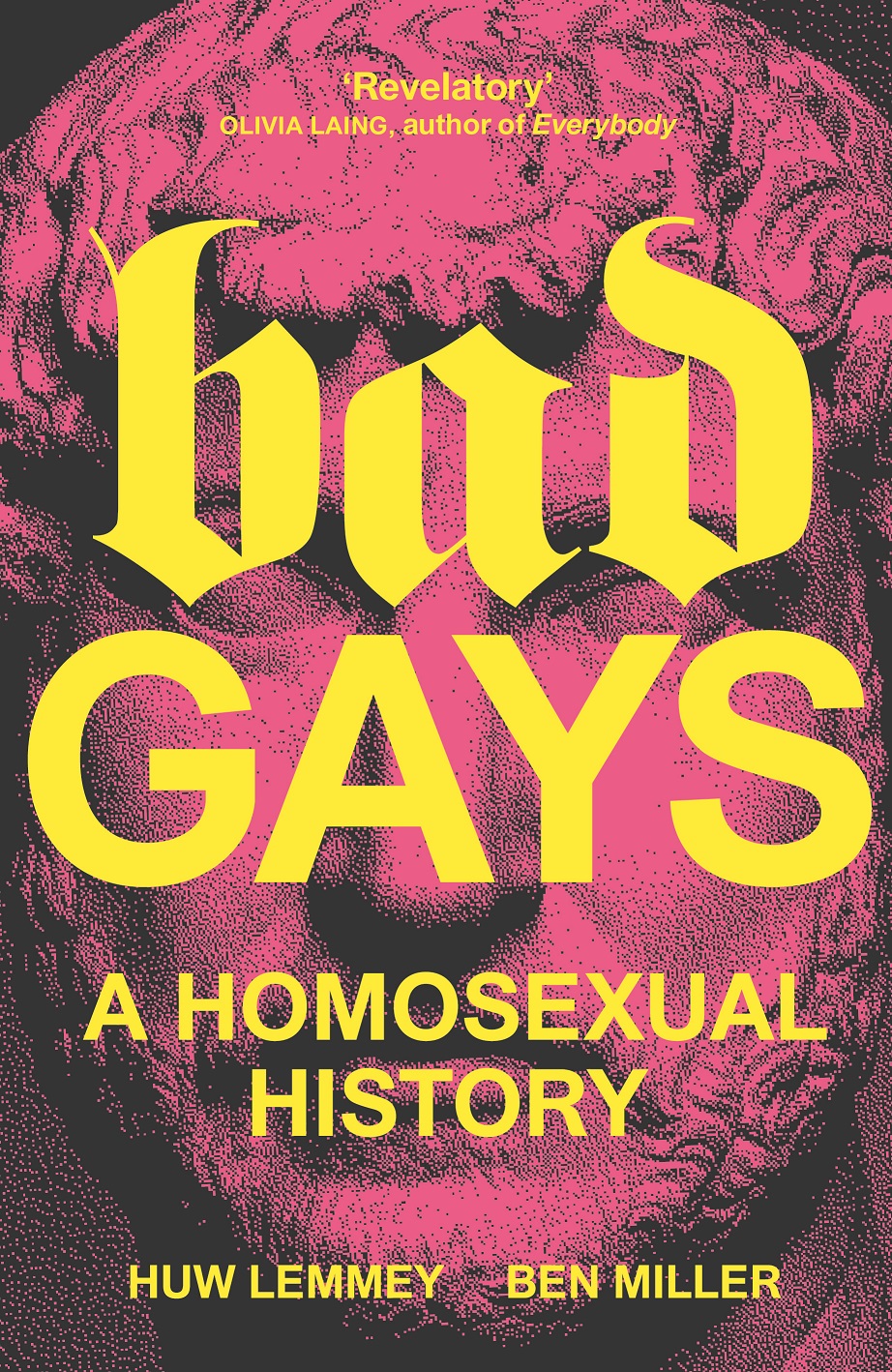
Despite these provocations, Miller and Lemmey are not right-wing critics on an anti-gay tirade. “If it is not clear enough that we are not writing as homophobes, ask our boyfriends, our lovers, our friends,” they write in the book’s introduction. “Both of us are deeply shaped by homosexuality but also deeply unsatisfied by it.”
Rather, the two come from a place of deep care for the communities they describe. Miller and Lemmey write against the “progress” narrative of queer history, that “slow forward march toward rights and justice,” but rather toward something a bit more complicated and maybe even a bit more hopeful.
“Our history is full of failed attempts at liberation, at new boundaries rolled back in public book burnings, of the ever-present threat of state suppression and social stigma,” they write. “It is not easy, especially when subjects are marked by whiteness and other forms of power and privilege, to neatly separate the good from the bad, the right from the wrong. The answer, though, is not to simply stan our heroes and shush up about their flaws and faults; rather, it’s to understand how people have made and been made by history, how and why they have failed and how and why we might succeed.”
The book is an extension of a “Bad Gays” podcast that Miller, a writer and researcher in Berlin, and Lemmey, a novelist, artist and critic in Barcelona, have been producing since 2018. The podcast is now in its fifth season and with more than 60 episodes, each of which explores the life of an “evil and complicated” person in history who, in some way or another, we might call “queer” from our perspective in the present. “If we are to accept that some of the greatest artists, activists and poets of history were guided and motivated by their sexuality,” the two pose in the book’s introduction, “why not the criminals, despots and bigots?”
Similar to their podcast, each chapter in the book is dedicated to a different “bad gay,” half of whom the two have already discussed on the podcast and half of whom are new subjects. It’s an expansive look at queers in history, from Hadrian, emperor of Rome in the second century, to Pim Fortuyn, the far-right Dutch politician who was assassinated in 2002. In the more than 1,800 years between the two lives, Miller and Lemmey look at an array of characters who span centuries and continents, including 16th-century king James VI/James I, the so-called “Bad Gays of Weimar Berlin,” former FBI director J. Edgar Hoover and Japanese author and nationalist Yukio Mishima.
About the Victorian era, they write: “European men searching for historical examples of their own same-sex desires would find in the Greek and Roman worlds a new model for their own sexuality, men who loved other men without shame, and who weren’t regarded by their peers as aberrant, diseased and disgusting, as they themselves were. A story was constructed that said homosexual men have always existed. Yet a closer look at the nature of same-sex love in the society in which Hadrian lived, and his obsessive love for a much younger man in particular, complicates the idea of an unchanging thread of homosexuality that passes throughout history, sometimes suppressed and sometimes celebrated, of same-sex relationships that looked the same and felt the same.”
The book is immensely readable, employing the same casual and often humorous style of storytelling the two have become known for on their podcast. And, counter to the somewhat hostile tone you might expect based on the book’s title, the chapters are full of reflection and care for their subjects. “Ultimately, this book is a project of demystification and an act of love,” Miller and Lemmey write. “‘Gay is good,’ went the old slogan, but it’s no good at all on its own.”
Ben Miller, one half of the writing duo, spoke with Xtra in Berlin.
Where did the idea for your podcast, and subsequently this book, originate?
Huw and I had noticed a distinction between the kinds of conversations about queer history that were happening in academic and activist communities that we are parts of, and versions of those stories that were making it into more mainstream media. There’s a whole genealogy of academic and activist thought going all the way back to the very beginning of gay liberation that questions both the idea that a gay, lesbian or trans identity is some historically fixed thing that has always existed in precisely the same ways, and the assumption—which, if you think about it for more than two seconds, is a pretty stupid one—that every single person with one of those identities is going to be a good person. And yet, despite that, we noticed that in a lot of more mainstream conversations, conversations outside of these academic and activist and scholarly communities, were on a basic “here are the great heroes of queer history” level. We thought that conversation needed to be more complicated, and we thought there was an audience that was ready to have that more complicated conversation.
How did you arrive at the style you use in this book, which is an interesting and very readable mix of well-researched, quasi-academic language and something that is much more casual and accessible, referring to “evil twinks” and describing the sexual escapades of your subjects?
It’s a learned style. Queer scholars, activists and especially in many instances, queer scholars and activists of colour, have for a long time been combining and trying to question, as part of what they’re doing, this sort of binary between what happens in the head and what happens in the body. Both of us learned how to be the kinds of gay men that we are from a whole variety of places and sources, and I think it’s about adapting that.
You take great pains both in the podcast and in the book to emphasize that terms such as “gay,” “queer” or even “homosexual” were not in use until relatively recently, and that most of the people you discuss would never have described themselves using these terms. Why, then, have you committed to using the term “gay” for this project?
The book is about how the “white gay man” as an identity figure went from being something that, more than 150 years ago, was a contradiction in terms, to now, where the white gay man is a thing that I am. It is a category of being in the world that is there for me to walk into and live in. Not that there were not people who were doing same-sex acts more than 150 years ago who were both white and men, in terms of how they moved through the world. But if they were, they weren’t queered in the way that the word “gay” does to you. The thesis of the book is that that process was a profound mistake. Because that process was about a subset of people who were, you might say, “homosexual-ized” by the creation of this idea of sexuality, by which who you fuck is what you are. It was a way for a subgroup of those people to ally themselves with whiteness and maleness and become essentially indistinguishable figures from other men in the dominant culture. That’s what the book is about. And that’s why it’s called Bad Gays, because it’s about people—12 white men, one Japanese man and one white woman—who help us understand how that “white gay man” happened.
How did you and Huw decide who to include from the people you have already discussed on the podcast, and who to leave out?
The book mostly tracks this story of the invention of the modern homosexual, and when we go to the stories that are before that, which are before the period of “modernity,” those stories we select because we think that there’s something specific about this person that really helps you understand what happens later. So someone like Hadrian, for example, you really need in order to understand this cult of the Greeks that forms among gay men, say, in Weimar Berlin. Or you need Frederick the Great in order to understand the shifting relationship between sexuality, masculinity and nationalism.
Looking at the list of people you include in the book, it seems there are degrees of “badness.” For example, few would argue with the idea that Ernst Röhm, an early member of the Nazi Party and close friend of Adolf Hitler, was “bad.” Others might be surprised that, for example, the anthropologist Margaret Mead, who is perhaps most well known by the general public for her quote “Never doubt that a small group of thoughtful, committed, citizens can change the world,” is included in this list. Are you worried about comparing these people in this way?
The remit of the show has always been “evil and complicated.” I don’t think that everyone in the book is equally as bad. I would say that Pim Fortuyn was evil, I would say that Ernst Röhm was evil. I would say Margaret Mead is maybe both evil and complicated. Whatever lingering affection you might have for Margaret Mead, she can’t really survive the post-colonial critique of her work and the project that it’s pursuing. I think someone like Roger Casement is potentially quite heroic. He was an Irish journalist and muckraker and traveller who ends up writing reports on the evils of, first Belgian colonialism in the Congo, and then other colonialism in South America. These reports are quite influential in terms of making a public outcry about what’s going on. Someone like Casement, I think, does help challenge this idea that certain people were just a product of their time. Because, obviously the people who were being colonized knew that this wasn’t right. But also, there were actually many white people who were active in anti-colonial movements—many white people, but not certainly not enough. But does someone like Casement come into the category of bad? Well, there’s a few things. One, he’s definitely complicated, because he’s doing all of these reports on behalf of the British colonial project to try to make it look less bad in comparison. And then he ends his life in infamy. He finally does turn on the Brits, tries to run guns to the Irish before the Easter Rising, is caught and then his sexuality is dramatically revealed. In that sense, that’s also part of that word “bad.” But it’s not at all a claim that everyone in the book is equally—to use a word that has been overused to the point where it doesn’t really mean anything anymore—“problematic.” It instead means that these are people who are different degrees of evil and complicated in differing amounts.
What do you hope readers take away from this book?
My biggest hope about the project and the book is that it’s a gateway drug, and that people find their way through it to a whole world that exists of interesting and smart and critical queer thought that is happening all over the place. This idea that the process of creation of the “white gay man” is bad and is about aligning white gay men with maleness and whiteness instead of separating us from other kinds of homosexuals as people—that is not in any way an original claim. I think the book goes about telling the story in an original way, but I would never say that we “uncovered” these stories, or that we “unearthed” these stories.
This book makes me think of another book that’s coming out this summer, Laurie Marhoefer’s Racism and the Making of Gay Rights. Marhoefer comes to the conclusion that maybe we ought not to have “gay heroes” after all. What do you think about that idea?
I think everyone is going to be complicated all the time. There’s that great Eve Sedgwick quote: “people are different from each other.” Everyone is complicated, and I think the book is not really an attempt to do a sort of queer version of “your faves are problematic.” But we hope that what people come away from the book with is a visceral sense of the way that
people both shape and are shaped by history, and that we should think about this question of how to be people in the world with some degree of humility and understanding of what has happened before us. To say that there should be no more historical heroes is not really sufficient, and it’s also very hopeless. And I don’t like either of these things. I think it’s a question of being humble in our assessments of people, and trying to realize that there is always going to be new information or new ways of thinking that will change how we think about the past and ourselves. And that’s a good thing.
This interview has been edited for length and clarity.
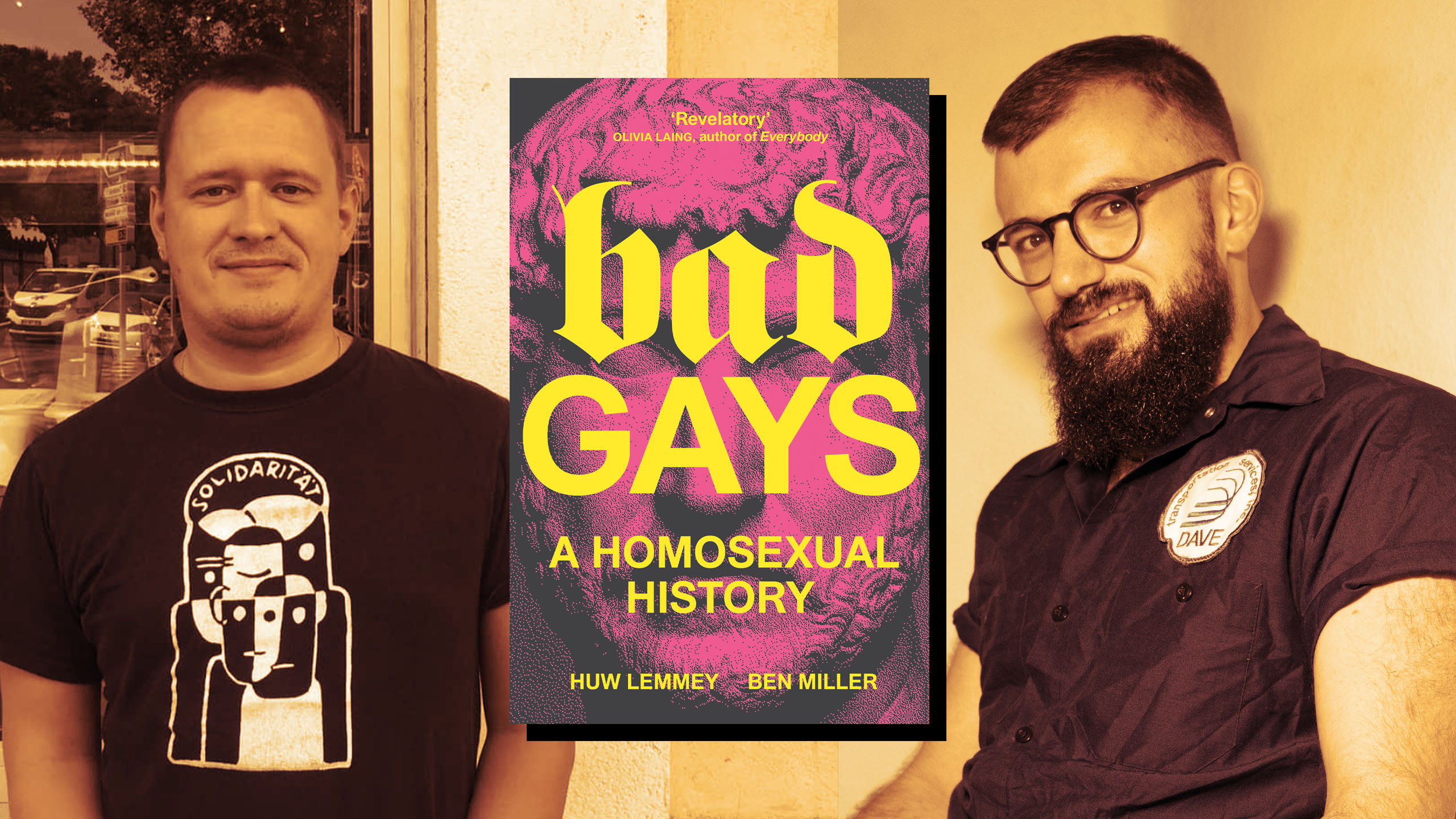

 Why you can trust Xtra
Why you can trust Xtra